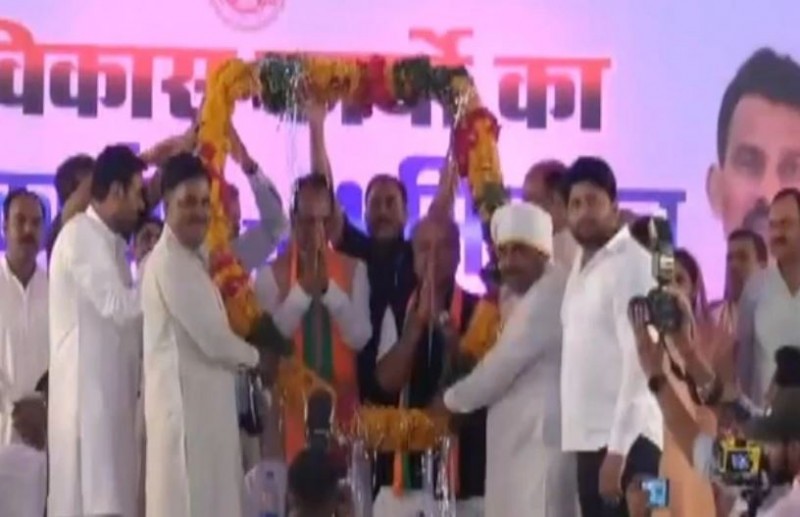
Bhopal: Mian Tansen, one of the nine gems of Akbar, is born in Behat in Gwalior district of Madhya Pradesh. On Thursday, Chief Minister Shivraj Singh reached Behat. Due to this, he announced to change the name of Behat to 'Tansen Nagar'. Along with this, he said that a college will be opened in Behat. Chief Minister Shivraj Singh Chouhan also informed the women who came to the program about the Ladli Behna Scheme. Apart from this, he sang the song 'Phoolon Ka Taron Ka Sabka Kehna Hai Ek Hazari Mein Meri Behna Hai, Saari Umar Hum Sang Rehna Hai' for the ladli sisters.
In fact, on Thursday, CM Shivraj Singh Chouhan opened the treasury of the government in Behat, the birthplace of Maharishi music emperor Tansen, and gave gifts of big development works. Addressing the gathering at a grand program organized at the Agricultural Produce Market complex of Behat, he said that along with development works in the state, a period of social revolution and self-reliant and economic empowerment of the people of the state is going on. He further said that in this direction, the government has started the revolutionary Mukhyamantri Ladli Behna Yojana. The programme was presided over by Union Agriculture and Farmers Welfare Minister Narendra Singh Tomar.
Chief Minister Shivraj Singh Chouhan inaugurated and laid the foundation stone of development works worth more than Rs 101 crore, including the ambitious Ticketauli Micro Irrigation Project, at a grand event held in Behat, the birthplace of music maestro Tansen. He also announced the opening of a college in Behat. Chief Minister Chouhan has also announced to change the name of Behat. Behat will be renamed as 'Tansen Nagar', he said. Chief Minister Shivraj Singh Chouhan has also announced to provide a grant of Rs 1 crore for the renovation of Anjani Mata Temple located in Behat area and renovation of Chandila Dam of this area on the basis of technical examination.
Quality healthcare for every citizen top priority of govt: Mandaviya
Cases of religious conversions have been reported from 70 villages of Shahdol